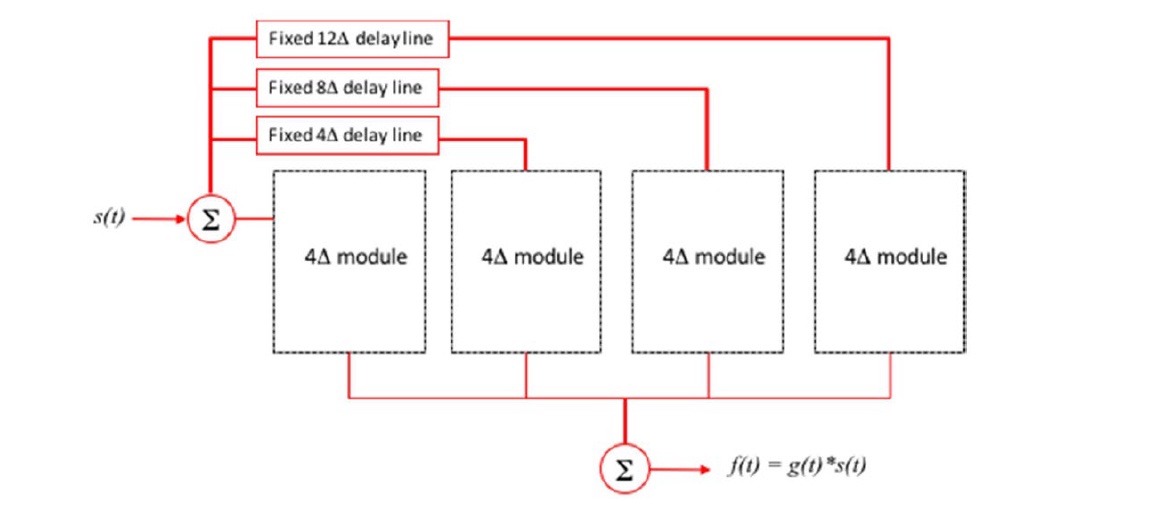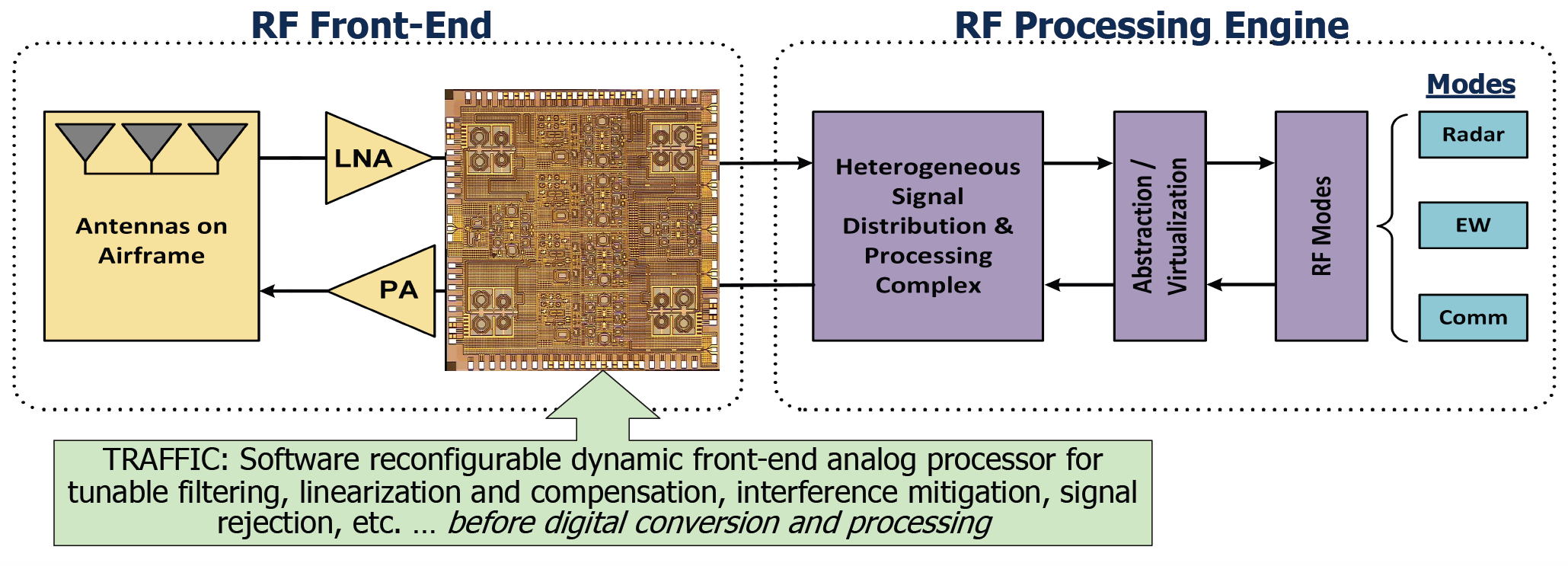Lack of analog FIR technologies limits RF industry
Antenna receivers are used throughout the world in various RF applications, such as microwave sensing, military radar installations, wireless communications, and radio telescope arrays. Finite impulse response (FIR) filters play a critical role in RF devices because they modify signal properties and enable advanced data processing. Although FIR filters are widely used with digital signals, there are limited high-quality, programmable processors available for RF analog signals. RF analog technologies could alleviate congested spectrums, reduce power consumption, and provide configurable small footprint devices for many applications. The lack of analog FIR technologies limits the bandwidth, scalability, and size of the analog systems as well as the entire RF industry.
Improved analog FIR processor provides configurable solution with multipurpose RF applications
Transversal Radio Frequency Filter Integrated Circuit (TRAFFIC) is the first generalized, modular, and broadband analog FIR processor integrated circuit and architecture. This versatile technology allows for analog multi-functional RF systems with the ability to support bidirectional communications on the same frequency. It enables front-end direct processing of RF signals for frequency filtering, linearization, matched filtering, and isolation. TRAFFIC’s characteristics are determined by a set of multiplying parameters rather than by physical components as in traditional analog filters. These programmable values can be changed to easily alter the processor’s characteristics and produce a better representation of the ideal signal despite variations in degradation factors.
- High performance: Enables direct throughput processing of RF signals within the microwave and millimeter-wave spectrums
- Multi-purpose: Offers tunable RF front-end filtering, pre-linearization of signals for amplifier saturation compensation, direct throughput matched filtering to enhance the signal-to-noise ratio of weak signals in noisy environments, and additional functionality for adaptive processing of RF signals
- Improves on existing RF: Significantly reduces the size, weight, and power requirements of RF technologies
- Versatile: Offers a configurable format that can be easily interfaced with existing RF devices
- Reliable: Operates in extreme environments, including wide temperature ranges and exposures to high-energy radiation, due to silicon-germanium (SiGe) integrated circuit technology
- Scalable: Allows the number of FIR taps to be easily scaled at either the chip or board level
- Technology agnostic: Can be implemented in any arbitrary design platform (e.g., RF-CMOS on silicon on insulator (SOI), III-V, etc.) via its use of SiGe bipolar complementary metal–oxide–semiconductor (BiCMOS) technology
TRAFFIC has wide-reaching applications across industries that use RF signals, including:
- Direct throughput matched filtering
- Electronic warfare systems
- Multi-function spectrum-dense applications
- Reconfigurable/Tunable RF front-end filtering
- Wide-band/Multi-band radar
- Small form factor applications (e.g., unmanned platforms for dismount) that were previously limited to platforms with larger weight/power budgets for digital systems

Modular analog TRAFFIC architecture that uses a series of small multi-tap (~4 taps) transversal filters.

Modular RF signal chain indicating the benefits of TRAFFIC.
